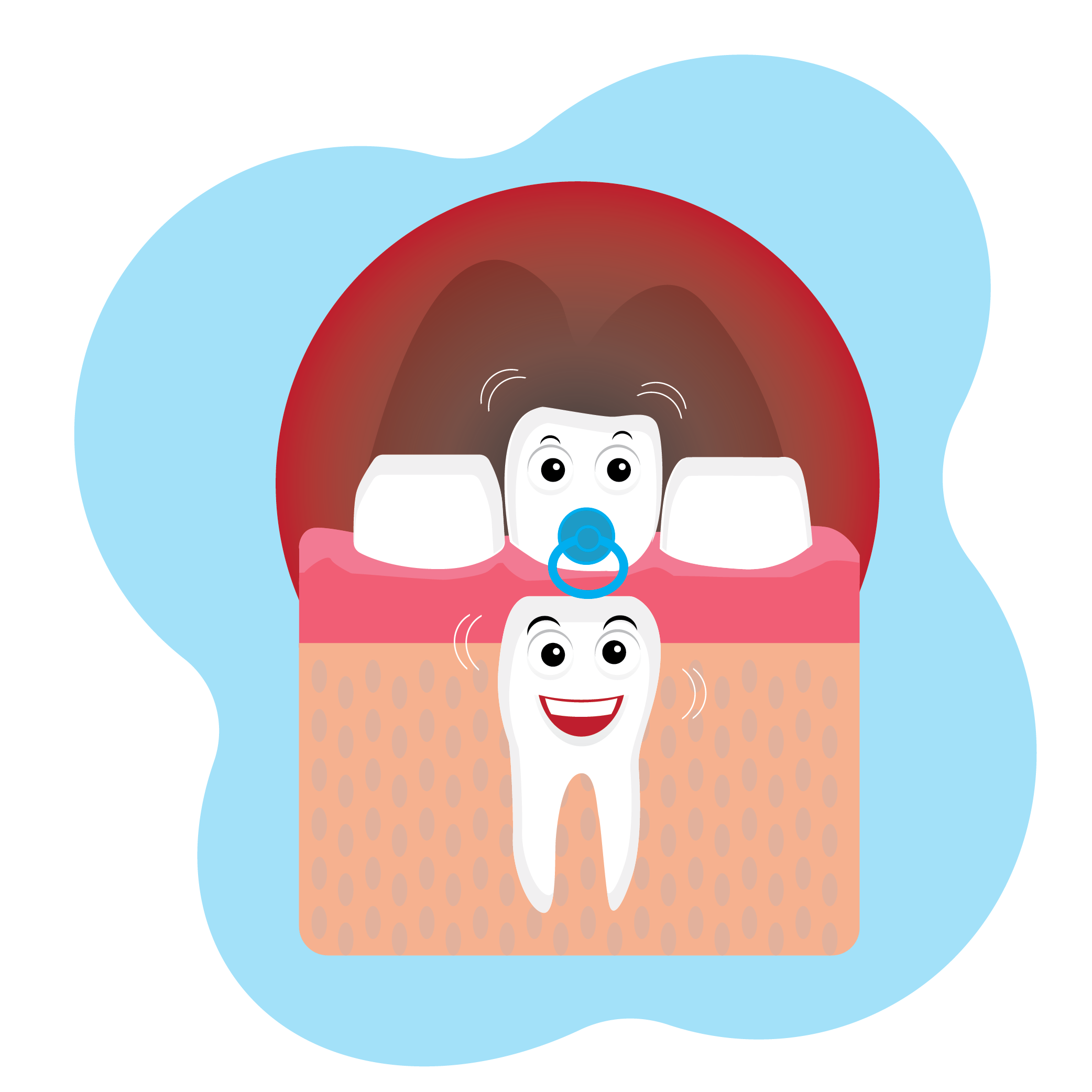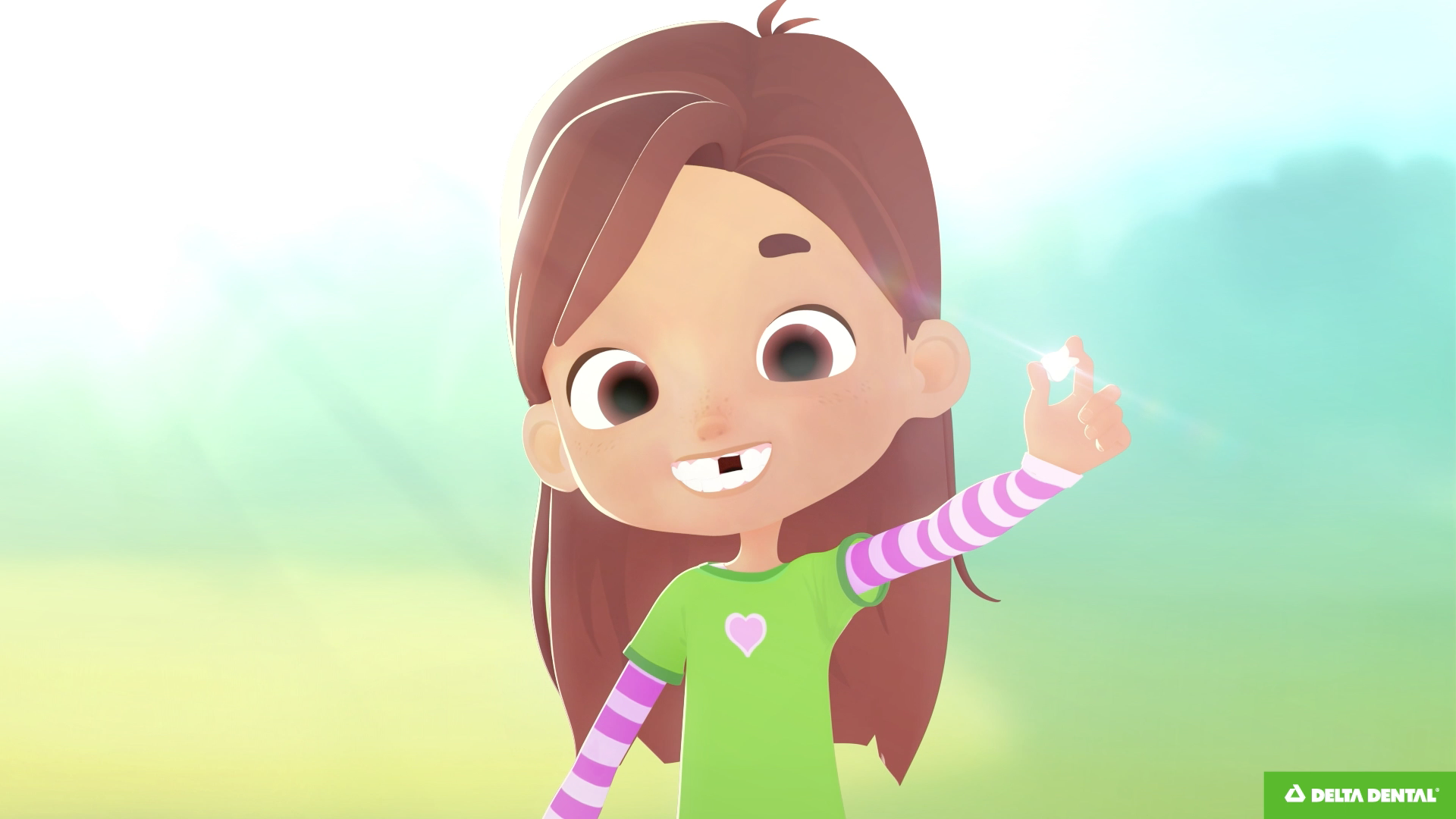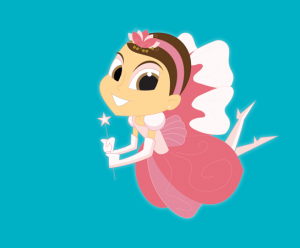
Most children start to lose their baby teeth (primary teeth) around ages 6 or 7, but a little before or after is also normal. Typically, the two lower central teeth are the first baby teeth to become loose and fall out. Next are usually the upper central teeth then the second incisors, canines and first molars. The process continues, with baby teeth falling out and being replaced by permanent, until around 21 years of age when wisdom teeth may still be growing in.

Baby Teeth— Q&A
Why do baby teeth become loose and fall out?
Baby teeth become loose because the permanent teeth are coming into the mouth. This process shouldn’t need intervention as most primary teeth will fall out on their own in a couple of weeks. If a baby tooth is still there when the permanent tooth comes into place, you can discuss this with your child’s dentist.
Is it painful? Will there be bleeding?
Once the baby tooth finally comes out there can be some bleeding and discomfort. Your child can rinse their mouth gently with warm water to help with the bleeding. Contact your child’s dentist or doctor for bleeding that continues for more than one hour.
Why do adult/permanent teeth look so different?
Those “new” teeth may look too big at first, but your child will grow into them. Permanent teeth may have tiny ridges on the top of them called mamelons. Mamelons usually flatten out from normal biting and chewing.

What if my child lost their teeth early?
Sometimes baby teeth can come out or be removed early because of trauma or dental disease. Your child’s dentist can help manage these issues. Baby teeth are important for having a healthy smile, for speech and to save the space for their permanent teeth.
What about a visit from the Tooth Fairy?
When a tooth is lost, a child might receive a visit from the Tooth Fairy or the mythical mouse el Ratoncito (aka el Ratoncito Perez in certain countries) in Spanish-speaking households. These visitors collect the teeth and leave a prize in exchange, like money or a small gift.
We want all children to enjoy a lifetime of good health, and oral health is an important part of that. Your child should brush twice daily with fluoridated toothpaste starting at tooth eruption, eat a healthy diet and get to the dentist regularly in order to ensure good overall health.
Additional Resources:
https://www.mouthhealthy.org/en/ask-an-ada-dentist/lost-a-baby-tooth
Published: February 16, 2021
Reviewed: February 1, 2022
This information in this post is for general educational purposes only and does not warrant or represent any information as related to health as specifically appropriate for you. It is not intended to be medical advice or replace the relationship that you have with your health care providers. You should always seek medical advice on any diagnosis or treatment from a qualified health care provider. The information is provided “as is” without any representations or warranties, express or implied.
Subscribe now
Your address and personal information will be safely stored in our database. We do not share or sell this information with anyone. You can unsubscribe to this subscription at any time.





